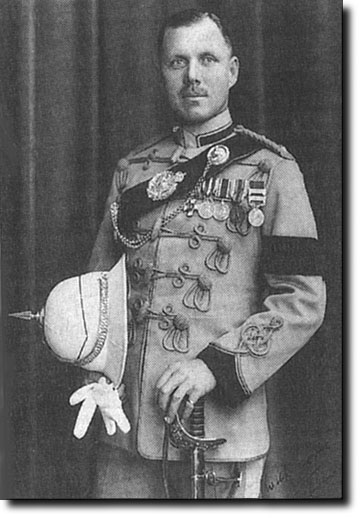|
|

 |
| Terence Conner's family came from Ireland but he was born in Madras in 1895. At the outbreak of WW1 he joined the 26th and fought against Germans and Turks in Mesopotamia where he was wounded and mentioned in despatches. He saw active service for most of his military life. In 1818 he was sent back to Mesopotamia to suppress an Arab rebellion which led to the independence of that counrty from Turkish domination. He served on the North-West Frontier in 1923 but his greatest adventures took place in Burma during the 1920s and 30s. He obtained permission to be seconded to the Burma Military Police so that he could take part in the rescue of slaves and human sacrifices.
North Burma was not administered by the British but it came under the jurisdiction of the British-Indian Government. Conner had to travel down the Irrawady on a raft for 360 miles. For most of the journey they were shot at by dacoit gangs armed with blunderbusses loaded with nails. In 1931 he commanded a battalion of Burma Military Police holding the rank of captain. Their enemy was a group of rebels led by the 'Magician King' who had convinced his followers that his charms made them invulnerable to bullets. They continued to believe him even when they were wounded. The rebels torrorised local villagers, roasting them alive if they failed to provide them with food and money. Conner's success against them earned a recommendation for a CBE. As he was only a captain he was denied this but did receive a DSO and King's Police Medal. |
Armed Forces | Art and Culture | Articles | Biographies | Colonies | Discussion | Glossary | Home | Library | Links | Map Room | Sources and Media | Science and Technology | Search | Student Zone | Timelines | TV & Film | Wargames
